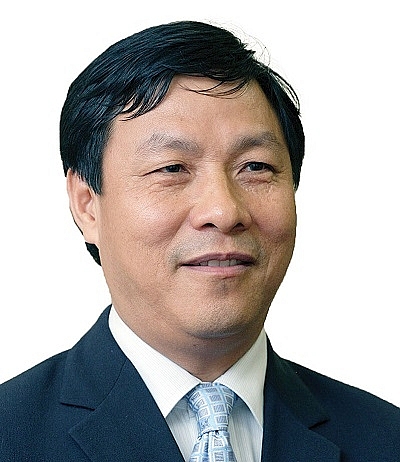Wide-ranging changes for decade of investment
 |
| The amendments can simplify procedures and ease business conditions for investors at home and abroad |
Last week, the National Assembly’s (NA) Economic Committee held a meeting to examine and verify the draft amendment to the Law on Investment 2014 with the participation of NA deputies, representatives from ministries, and businesses to prepare for compiling a verification report for discussion at the NA’s eighth session in October.
Vu Dai Thang, Deputy Minister of Planning and Investment from the compiling board of the draft said, “The amendment aims to further improve the business climate and help businesses overcome barriers, while increasing the quality and efficiency of foreign direct investment (FDI) in line with the development trajectory drawn up for sectors and areas, security, defence, sustainable development, and environmental protection.”
The amended draft includes the reworked market access conditions and investment incentives – two long-awaited changes regarding foreign investors that would institutionalise the Politburo’s recently-issued Resolution No.50-NQ-TW, giving directions to the new FDI attraction strategy towards 2030, thus expecting to open up broader opportunities.
The draft would supplement the list of business lines with conditional market access for foreign investors. The list includes the business lines where foreign investors are not yet allowed to operate, and others where they are only allowed to enter under certain conditions. For business lines not on the list, the conditions for market access for foreign investors are the same with domestic ones.
The government will adjust the list based on socio-economic development as well as laws and international treaties on investment. This is aimed to simplify procedures and increase transparency, as well as facilitate the country’s commitments on opening the market in accordance to its commitments under new-generation free trade agreements (FTAs) and international treaties on investment.
It also harmonises Vietnam’s different FTA commitments having different market access approaches.
Once approved, foreign investors will only need to look up the list without having to compare or check the conditions stated in the more than 10 FTAs and hundreds of related legal documents, as they currently do.
As the second awaited change, the draft will add some sectors and investment activities eligible to investment incentives. Under Article 17(1) of the draft, the new fields include research and development (R&D), manufacturing and trading of products as a result of scientific research, innovation activities, manufacturing of goods, among others.
The draft also proposes adding a mechanism allowing the government to decide to add investment incentives and extend the schedule for existing investment incentives to encourage development of a sector, an area, or especially important projects. The added incentives cannot be higher than 50 per cent of the current highest level, while the extension cannot be longer than the longest time period available.
These projects include new and expanded R&D centres, innovation centres with the total investment capital of VND6 trillion ($260.87 million) or more, and projects in the sectors eligible for special incentives and with the total investment capital of at least VND30 trillion ($1.3 billion) – VND10 trillion ($434.78 million) of which will be disbursed within three years.
This addition will be in alignment with the soon-to-be-issued new FDI attraction strategy towards 2030 which will prioritise high-tech projects and those helping Vietnam join global value chains.
What is more, commercial housing is removed from the sectors eligible for investment incentives to ensure consistency with the regulations of the Law on Land. Additionally, investment incentives will be of no difference for newly-licensed and expansion projects.
Despite the highlights, some delegates at last week’s meeting were still concerned over feasibility, procedures, and possible problems related to the implementation of the draft.
Vu Hong Thanh, chairman of the Economic Committee, stated, “Many contents of the law should be changed to adapt to the reality. The important thing is to create consistency between the amended Law on Investment and others such as the Law on Public Investment and the Law on Construction, while attention must be paid to policies on revoking projects with violations.”
With the amendment still under the hammer and gaining shape, all these issues come to the fore. The proposed changes, however, are raising the hopes of foreign firms in improvements in the business climate when they are expected to take effect in January 2021.
| Vu Dai Thang - Deputy Minister of Planning and Investment
The draft law amends 34 articles, adds four new ones, and removes two others. There is a focus on clarification of concepts like approval of investment plans, conditional business lines, business conditions, conditions for market access for foreign investors, investment incentives and procedures, and outbound investment, all aiming to create a more bankable legal framework. The amendment aims to institutionalise the Party’s recent resolutions on the development of the private sector and to complete the policies and legal framework to increase the quality of FDI and the efficiency of FDI attraction by 2030. Accordingly, the amendment will focus on completing the regulations on conditional businesses and conditions, the removal of unnecessary and unreasonable conditions, the simplification of administrative procedures, and increasing the efficiency of state management and transparency, while ensuring consistency with other laws. Dang Huy Dong - Former Deputy Minister of Planning and Investment
The amendment of the Law on Investment 2014 is necessary to keep up with rapid changes in the market, especially the capital market. We have seen new businesses models based on innovation, Industry 4.0, and the sharing economy emerge in bigger numbers. Changes aim to attract higher-quality foreign-invested projects which will better serve national development. However, we cannot increase the quality of FDI if our business conditions and investment incentives are not up to speed. For this, the supplementation of the list of conditional business lines for foreign investors is a new positive development. Vietnam has a highly dense population. It is high time for us to carefully consider and set a desired investment rate per hectare. If we continue to grant investment certificates for projects with a timeline of 50-70 years, we might not have land left for new investments with newer technologies and higher added value 20-30 years later. Nguyen Trung Quynh - Deputy director Management Board of Hoa Lac High-tech Park
Article 33 of the draft law details the right to approve investment plans to provincial and municipal people’s committees. Specifically, Clause 2 states that projects named in Article 33(1a and 1b) on investment in industrial parks, export processing zones, high-tech parks, and economic zones that are in line with the approved planning do not need to submit investment plans to the provincial and municipal people’s committees for approval. The removal of the projects named in Point d of Clause 1 of Article 33 from Clause 2 is not compatible with the real management of investment in high-tech parks because in the common planning, high-tech parks all include housing for workers. Thus, it is necessary to keep the projects named in Article 33(1a, b, d, and 2) unchanged as in the first version of the draft to ensure that investment management is unaffected at these parks, especially for those not directly under the management of the provincial and municipal people’s committees. The draft should also add the requirement to make a deposit for newly-licensed or expanded projects to ensure the implementation schedule and to prevent delays. What is more, the draft should add a regulation allowing the investment registration agencies to decide the operation time for each project to increase efficiency of investment and use of land. |
What the stars mean:
★ Poor ★ ★ Promising ★★★ Good ★★★★ Very good ★★★★★ Exceptional
Related Contents
Latest News
More News
- Hermes joins Long Thanh cargo terminal development (February 04, 2026 | 15:59)
- SCG enhances production and distribution in Vietnam (February 04, 2026 | 08:00)
- UNIVACCO strengthens Asia expansion with Vietnam facility (February 03, 2026 | 08:00)
- Cai Mep Ha Port project wins approval with $1.95bn investment (February 02, 2026 | 16:17)
- Repositioning Vietnam in Asia’s manufacturing race (February 02, 2026 | 16:00)
- Manufacturing growth remains solid in early 2026 (February 02, 2026 | 15:28)
- Navigating venture capital trends across the continent (February 02, 2026 | 14:00)
- Motivations to achieve high growth (February 02, 2026 | 11:00)
- Capacity and regulations among British areas of expertise in IFCs (February 02, 2026 | 09:09)
- Transition underway in German investment across Vietnam (February 02, 2026 | 08:00)




 Tag:
Tag:




















 Mobile Version
Mobile Version